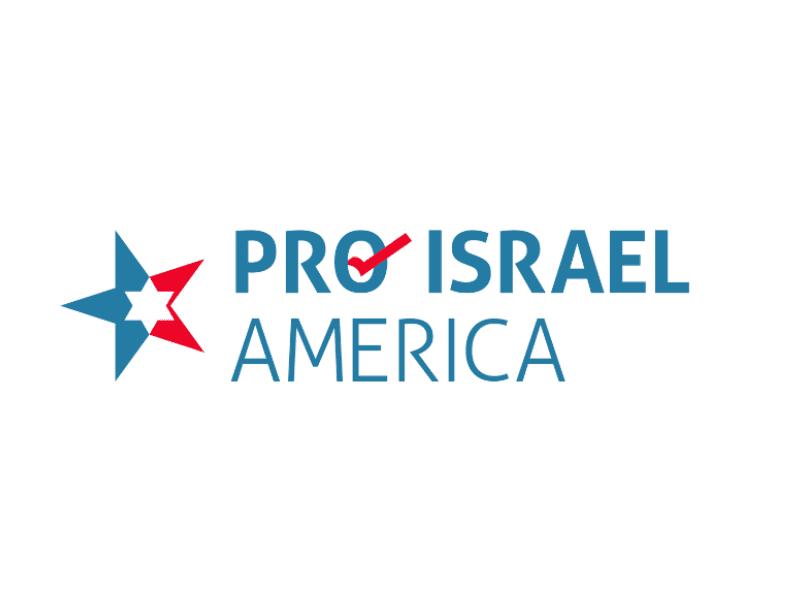By Marc Rod | May 13, 2024
The surprisingly high-profile Democratic primary in Maryland’s 3rd Congressional District will come to a head on Tuesday, in what’s shaping up to be a close contest between state Sen. Sarah Elfreth and former Capitol Police officer Harry Dunn.
The race has garnered national attention both due to Dunn’s candidacy — he’s a nationally known figure for his service at the Capitol on Jan. 6, 2021, and his subsequent advocacy — and because AIPAC’s United Democracy Project super PAC has spent, as of late last week, more than $4 million boosting Elfreth.
Internal polling from Dunn’s campaign in mid-April showed him at 22%, trailed by Elfreth at 18%, both within the margin of error, with state Sen. Clarence Lam, seen as a third potential front-runner, behind at 8%. When informed about the candidates, Dunn rose to 32%, followed by Elfreth at 28%. Lam and John Morse, a Sen. Bernie Sanders (I-VT) endorsee who has been critical of Israel’s campaign in Gaza, came in at 10%.
A source familiar with the race told JI that Elfreth’s campaign polling, in the field shortly after the Dunn poll, showed her leading, but also within the margin of error. The individual predicted relatively low turnout in the primary, given that the Democratic presidential primary is already decided.
UDP’s involvement has puzzled some observers — Elfreth doesn’t face any high-profile opposition from an anti-Israel candidate, although outspoken critics including Morse are in the race. UDP has maintained that it’s not concerned about Dunn’s stances on Israel.
“While we appreciate Harry Dunn’s support for a strong U.S.-Israel relationship, Sarah Elfreth’s leadership on abortion rights, climate change and domestic violence makes her a stronger candidate for the voters of Howard, Anne Arundel and Carroll counties,” UDP spokesperson Patrick Dorton told Jewish Insider in April. “There [are] some serious anti-Israel candidates in this race, who are not Harry Dunn, and we need to make sure that they don’t make it to Congress.”
Dunn, Elfreth and Lam all said at a candidate forum last month that they support Sen. Chris Van Hollen’s (D-MD) efforts to limit U.S. aid to Israel, although Elfreth — who had previously denied supporting additional conditions on U.S. aid — and Dunn said they had interpreted the question differently and were only calling for compliance with existing, globally applicable U.S. regulations on aid, not new conditions.
Dunn, who has a significant national profile, has led the field in fundraising with $4.6 million, trailed by Elfreth at $1.5 million and Lam at $736,000 as of April 24. But the UDP spending supporting Elfreth has helped close that gap and increase her visibility.
She’s also received an influx of support from AIPAC-linked donors, although she hasn’t been formally endorsed by AIPAC’s PAC. Rep. David Trone (D-MD), once a major AIPAC donor, who is running for Maryland’s open Senate seat, donated the maximum allowable amount to Elfreth last December.
Elfreth has been endorsed by Pro-Israel America, while J Street endorsed Dunn.
“We have had meaningful conversations with Elfreth where she has made clear that she supports Israel’s right to exist and defend itself and will work to be a strong champion of the US-Israel relationship in Congress,” Pro-Israel America’s executive director, Samantha Garelick, said. “She is also known for her collaborative leadership and working across divides to solve problems.”
Sen. Ben Cardin (D-MD) told reporters on Thursday that he was not endorsing Elfreth but thinks she’s “super qualified” and said he does not know Dunn.
Dunn has repeatedly bashed Elfreth over the UDP spending, seeking to tie her to Trump-supporting Republicans and GOP policies; those attacks have been a significant element of his campaign. But sources said that Israel policy differences have not been a major factor on the campaign trail.
While Elfreth has broadly decried dark money spending, she declined to disavow the UDP spending.
“I’m uncomfortable with dark money as well,” she told local outlet Maryland Matters. “This is our campaign finance system as it stands today. I don’t like it. But I’m not in a position to say no to people who want to amplify my message.”
Susan Turnbull, a former longtime Democratic Party official, who has also been a leader of multiple Jewish organizations and is backing Dunn, argued to JI that the UDP and AIPAC-linked spending is “not good for democracy,” harmful to perceptions of the Jewish community, damaging to UDP’s reputation and would be better redirected to other races.
“No one knows” why UDP is spending heavily in the race, Turnbull said, “and the people have the right to know.” Turnbull said she’s spoken directly with Dunn about Israel and heard him speak about the issue publicly, and “basically all he talks about is being a friend of Israel… he has never said a word that would be questioned. There is nothing there.”
And she dismissed the notion that any of the other candidates, like Morse, who have been publicly critical of Israel had any serious chance of victory, arguing instead that UDP’s focus on the race, if anything, “elevated” those candidates.


